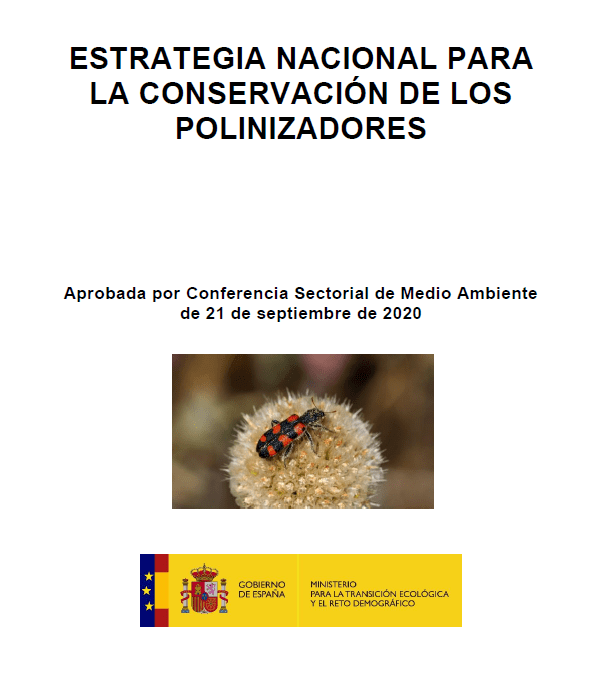Spain Adopts National Strategy for Conservation of Pollinators
In September the Spanish Environmental Sectorial Conference adopted a national strategy for the conservation of pollinators. The Promote Pollinators secretariat spoke to Noelia Vallejo Pedregal of the Spanish Ministry for the Ecological Transition and the Demographic Challenge (MITECO) about the implementation of the new strategy.

Four main areas of action
“There is a big lack of information on pollinators in Spain, as is the case worldwide” Noelia explains. She is happy that the strategy has been adopted: “The Promote Pollinators Coalition has been key for enhancing action at national level and it has been the starting point for the strategy. The strategy also builds on and goes beyond the actions outlined in the EU Pollinator Initiative.”
The strategy identifies four main areas in which actions need to be taken, which are in line with the main threat factors identified:
- The conservation of pollinator species and their habitats. “Pollinators and most invertebrate species have traditionally been underrepresented in protection laws, largely due to the knowledge gaps” Noelia says.
- The promotion of favourable habitats, both in the agricultural landscape as well as in urban areas and along major infrastructure. In this regard, Noelia stressed the role of the future CAP Strategic Plan as a tool to ensure that pollinators protection is adequately considered in agricultural policy and activities.
- Addressing risks like pests, invasive species, climate change and the management of phytosanitary products, which have been identified as a major threat to pollinators.
- Promoting research and knowledge: “Currently pollinators are not well-represented in the monitoring framework, so one of the first steps is to ensure this changes and we gain more knowledge about the current state of pollinators in Spain,” Noelia says. She also noted the importance of enhancing awareness raising and promoting citizen’s engagement for the protection of pollinators, where a relevant example is the recent participation of the Ministry in a thematic exhibition on pollinators led by the Museum of Natural Sciences of Barcelona.
Implementation
Noelia highlights the importance of involving different sectors and stakeholders in the implementation of the strategy. She says: “The implementation of the Strategy requires coordination with and participation of a range of stakeholders and sectors. For example, involvement of the agricultural sector and the beekeeping sector is crucial. This coordination with other entities will be one of the main challenges in the process of implementing the strategy, but it is also an essential factor. After all, the protection of pollinators provides important benefits and crucial services to all sectors, notably for the agricultural sectors, which relies notably on pollination services, as well as for the beekeeping sector. Their protection and conservation should therefore also be a coordinated and common objective for all these stakeholders.”
